formerly eScholarship Editions


|
|
|
|
Your request for similar items found 20 book(s). | Modify Search | Displaying 1 - 20 of 20 book(s) | |
| 1. | 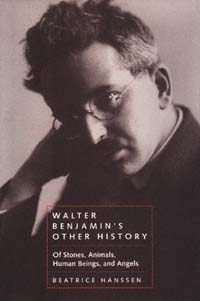 | Title: Walter Benjamin's other history: of stones, animals, human beings, and angels Author: Hanssen, Beatrice Published: University of California Press, 1998 Subjects: Philosophy | Rhetoric | German Studies | Literature Publisher's Description: Long considered to be an impenetrable, hermetic treatise, Walter Benjamin's The Origin of German Tragic Drama has rarely received the attention it deserves as a key text, central to a full understanding of his work. In this critically acclaimed study, distinguished Benjamin scholar Beatrice Hanssen . . . [more] Similar Items |
| 2. | 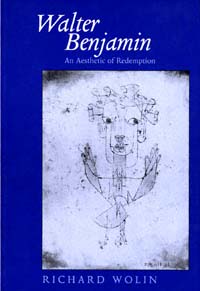 | Title: Walter Benjamin, an aesthetic of redemption Author: Wolin, Richard Published: University of California Press, 1994 Subjects: Philosophy | Literary Theory and Criticism Publisher's Description: Few twentieth-century thinkers have proven as influential as Walter Benjamin, the German-Jewish philosopher and cultural and literary critic. Richard Wolin's book remains among the clearest and most insightful introductions to Benjamin's writings, offering a philosophically rich exposition of his complex relationship to Adorno, Brecht, Jewish Messianism, and Western Marxism. Wolin provides nuanced interpretations of Benjamin's widely studied writings on Baudelaire, historiography, and art in the age of mechanical reproduction. In a new Introduction written especially for this edition, Wolin discusses the unfinished Arcades Project , as well as recent tendencies in the reception of Benjamin's work and the relevance of his ideas to contemporary debates about modernity and postmodernity. [brief] Similar Items |
| 3. | 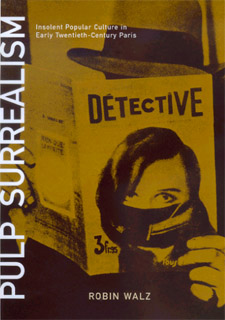 | Title: Pulp surrealism: insolent popular culture in early twentieth-century Paris Author: Walz, Robin 1957- Published: University of California Press, 2000 Subjects: History | French Studies | Comparative Literature Publisher's Description: In addition to its more well known literary and artistic origins, the French surrealist movement drew inspiration from currents of psychological anxiety and rebellion running through a shadowy side of mass culture, specifically in fantastic popular fiction and sensationalistic journalism. The provocative nature of this insolent mass culture resonated with the intellectual and political preoccupations of the surrealists, as Robin Walz demonstrates in this fascinating study. Pulp Surrealism weaves an interpretative history of the intersection between mass print culture and surrealism, re-evaluating both our understanding of mass culture in early twentieth-century Paris and the revolutionary aims of the surrealist movement. Pulp Surrealism presents four case studies, each exploring the out-of the-way and impertinent elements which inspired the surrealists. Walz discusses Louis Aragon's Le paysan de Paris, one of the great surrealist novels of Paris. He goes on to consider the popular series of Fantômes crime novels; the Parisan press coverage of the arrest, trial, and execution of mass-murderer Landru; and the surrealist inquiry "Is Suicide a Solution?", which Walz juxtaposes with reprints of actual suicide faits divers (sensationalist newspaper blurbs). Although surrealist interest in sensationalist popular culture eventually waned, this exploration of mass print culture as one of the cultural milieux from which surrealism emerged ultimately calls into question assumptions about the avant-garde origins of modernism itself. [brief] Similar Items |
| 4. |  | Title: Benjamin Franklin and his enemies Author: Middlekauff, Robert Published: University of California Press, 1996 Subjects: History | United States History | Autobiographies and Biographies | American Studies Publisher's Description: In this engaging study of the much-loved statesman and polymath, Robert Middlekauff uncovers a little-known aspect of Benjamin Franklin's personality - his passionate anger. He reveals a fully human Franklin who led a remarkable life but nonetheless had his share of hostile relationships - political adversaries like the Penns, John Adams, and Arthur Lee - and great disappointments - the most significant being his son, William, who sided with the British. Utilizing an abundance of archival sources, Middlekauff weaves episodes in Franklin's emotional life into key moments in colonial and Revolutionary history. The result is a highly readable narrative that illuminates how historical passions can torment even the most rational and benevolent of men. [brief] Similar Items |
| 5. | 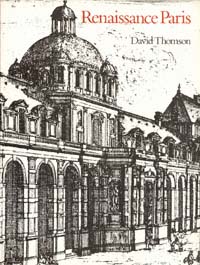 | Title: Renaissance Paris: architecture and growth, 1475-1600 Author: Thomson, David 1912- Published: University of California Press, 1985 Subjects: Art | Architecture Publisher's Description: In the modern literature on Renaissance art and architecture, Paris has often been considered the Cinderella of the European capitals. The prestigious buildings that were erected soon after François I decided in 1528 to make Paris his residence have long since been lost. Thomson, however, restores t . . . [more] Similar Items |
| 6. | 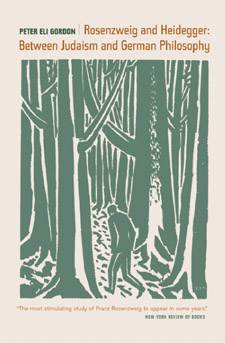 | Title: Rosenzweig and Heidegger: between Judaism and German philosophy Author: Gordon, Peter Eli Published: University of California Press, 2003 Subjects: History | German Studies | Religion | Judaism | European History | Intellectual History | Jewish Studies | Social and Political Thought Publisher's Description: Franz Rosenzweig (1886-1929) is widely regarded today as one of the most original and intellectually challenging figures within the so-called renaissance of German-Jewish thought in the Weimar period. The architect of a unique kind of existential theology, and an important influence upon such philosophers as Walter Benjamin, Martin Buber, Leo Strauss, and Emmanuel Levinas, Rosenzweig is remembered chiefly as a "Jewish thinker," often to the neglect of his broader philosophical concerns. Cutting across the artificial divide that the traumatic memory of National Socialism has drawn between German and Jewish philosophy, this book seeks to restore Rosenzweig's thought to the German philosophical horizon in which it first took shape. It is the first English-language study to explore Rosenzweig's enduring debt to Hegel's political theory, neo-Kantianism, and life-philosophy; the book also provides a new, systematic reading of Rosenzweig's major work, The Star of Redemption. Most of all, the book sets out to explore a surprising but deep affinity between Rosenzweig's thought and that of his contemporary, the German philosopher Martin Heidegger. Resisting both apologetics and condemnation, Gordon suggests that Heidegger's engagement with Nazism should not obscure the profound and intellectually compelling bond in the once-shared tradition of modern German and Jewish thought. A remarkably lucid discussion of two notably difficult thinkers, this book represents an eloquent attempt to bridge the forced distinction between modern Jewish thought and the history of modern German philosophy - and to show that such a distinction cannot be sustained without doing violence to both. [brief] Similar Items |
| 7. |  | Title: The rise of the Paris red belt Author: Stovall, Tyler Edward Published: University of California Press, 1990 Subjects: History | European History | Social Science | French Studies Publisher's Description: From 1920 until the present, the working-class suburbs of Paris, known as the Red Belt, have constituted the heart of French Communism, providing the Party not only with its most solid electoral base but with much of its cultural identity as well. Focusing on the northeastern suburb of Bobigny, Stovall explores the nature of working-class life and politicization as he skillfully documents how this unique region and political culture came into being. The Rise of the Paris Red Belt reveals that the very process of urban development in metropolitan Paris and the suburbs provided the most important opportunities for the local establishment of Communist influence.The rapid increase in Paris' suburban population during the early twentieth century outstripped the development of the local urban infrastructure. Consequently, many of these suburbs, often represented to their new residents as charming country villages, soon degenerated into suburban slums. Stovall argues that Communists forged a powerful political block by mobilizing the disillusionment and by improving some of the worst aspects of suburban life.As a social history of twentieth-century France, The Rise of the Paris Red Belt calls into question traditional assumptions about the history of both French Communism and the French working-class. It suggests that those interested in working-class politics, especially in the twentieth century, should consider the significance of residential and consumer issues as well as those relating to the workplace. It also suggests that urban history and urban development should not be considered autonomous phenomena, but rather expressions of class relations. The Rise of the Paris Red Belt brings to life a world whose citizens, though often overlooked, are nonetheless the history of modern France. [brief] Similar Items |
| 8. | 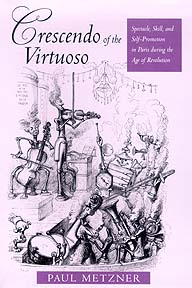 | Title: Crescendo of the virtuoso: spectacle, skill, and self-promotion in Paris during the Age of Revolution Author: Metzner, Paul 1952- Published: University of California Press, 1998 Subjects: History | European History | French Studies | European Studies Publisher's Description: During the Age of Revolution, Paris came alive with wildly popular virtuoso performances. Whether the performers were musicians or chefs, chess players or detectives, these virtuosos transformed their technical skills into dramatic spectacles, presenting the marvelous and the outré for spellbound audiences. Who these characters were, how they attained their fame, and why Paris became the focal point of their activities is the subject of Paul Metzner's absorbing study. Covering the years 1775 to 1850, Metzner describes the careers of a handful of virtuosos: chess masters who played several games at once; a chef who sculpted hundreds of four-foot-tall architectural fantasies in sugar; the first police detective, whose memoirs inspired the invention of the detective story; a violinist who played whole pieces on a single string. He examines these virtuosos as a group in the context of the society that was then the capital of Western civilization. [brief] Similar Items |
| 9. | 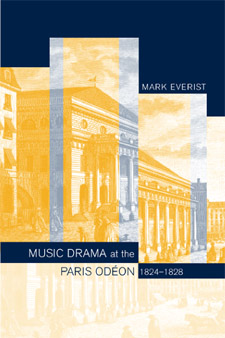 | Title: Music drama at the Paris Odéon, 1824-1828 Author: Everist, Mark Published: University of California Press, 2002 Subjects: Music | Musicology | Opera | French Studies | European History Publisher's Description: Parisian theatrical, artistic, social, and political life comes alive in Mark Everist's impressive institutional history of the Paris Odéon, an opera house that flourished during the Bourbon Restoration. Everist traces the complete arc of the Odéon's short but highly successful life from ascent to triumph, decline, and closure. He outlines the role it played in expanding operatic repertoire and in changing the face of musical life in Paris. Everist reconstructs the political power structures that controlled the world of Parisian music drama, the internal administration of the theater, and its relationship with composers and librettists, and with the city of Paris itself. His rich depiction of French cultural life and the artistic contexts that allowed the Odéon to flourish highlights the benefit of close and innovative examination of society's institutions. [brief] Similar Items |
| 10. | 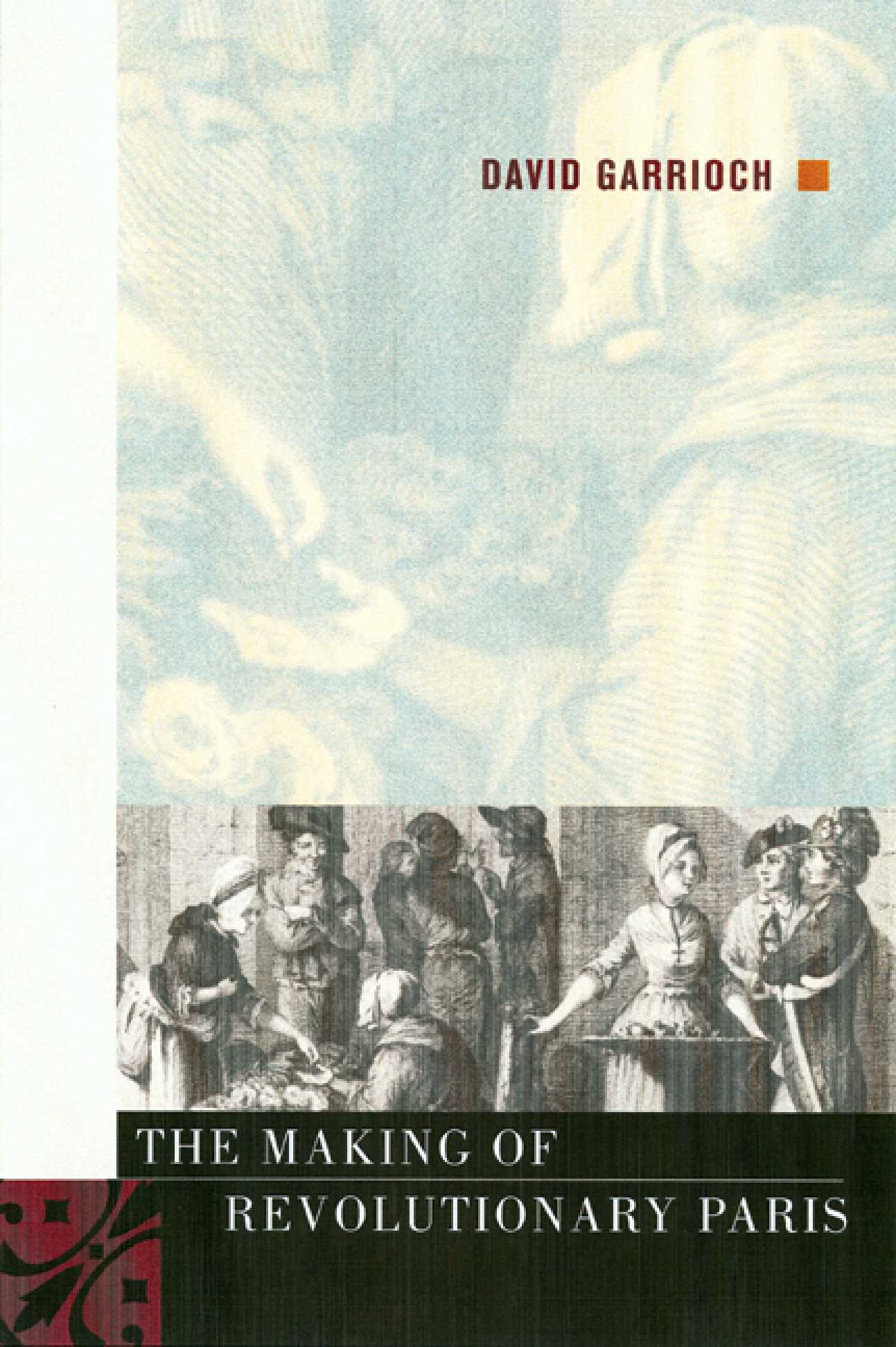 | Title: The making of revolutionary Paris Author: Garrioch, David Published: University of California Press, 2002 Subjects: History | European History | European Studies | French Studies Publisher's Description: The sights, sounds, and smells of life on the streets and in the houses of eighteenth-century Paris rise from the pages of this marvelously anecdotal chronicle of a perpetually alluring city during one hundred years of extraordinary social and cultural change. An excellent general history as well as an innovative synthesis of new research, The Making of Revolutionary Paris combines vivid portraits of individual lives, accounts of social trends, and analyses of significant events as it explores the evolution of Parisian society during the eighteenth century and reveals the city's pivotal role in shaping the French Revolution. David Garrioch rewrites the origins of the Parisian Revolution as the story of an urban metamorphosis stimulated by factors such as the spread of the Enlightenment, the growth of consumerism, and new ideas about urban space. With an eye on the broad social trends emerging during the century, he focuses his narrative on such humble but fascinating aspects of daily life as traffic congestion, a controversy over the renumbering of houses, and the ever-present dilemma of where to bury the dead. He describes changes in family life and women's social status, in religion, in the literary imagination, and in politics. Paris played a significant role in sparking the French Revolution, and in turn, the Revolution changed the city, not only its political structures but also its social organization, gender ideologies, and cultural practices. This book is the first to look comprehensively at the effect of the Revolution on city life. Based on the author's own research in Paris and on the most current scholarship, this absorbing book takes French history in new directions, providing a new understanding of the Parisian and the European past. [brief] Similar Items |
| 11. | 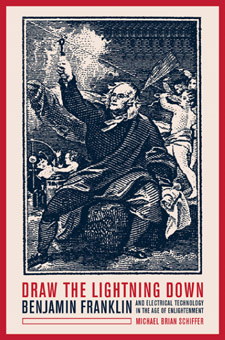 | Title: Draw the lightning down: Benjamin Franklin and electrical technology in the Age of Enlightenment Author: Schiffer, Michael B Published: University of California Press, 2003 Subjects: History | Urban Studies | History of Science | Anthropology | American Studies | European History Publisher's Description: Most of us know - at least we've heard - that Benjamin Franklin conducted some kind of electrical experiment with a kite. What few of us realize - and what this book makes powerfully clear - is that Franklin played a major role in laying the foundations of modern electrical science and technology. This fast-paced book, rich with historical details and anecdotes, brings to life Franklin, the large international network of scientists and inventors in which he played a key role, and their amazing inventions. We learn what these early electrical devices - from lights and motors to musical and medical instruments - looked like, how they worked, and what their utilitarian and symbolic meanings were for those who invented and used them. Against the fascinating panorama of life in the eighteenth century, Michael Brian Schiffer tells the story of the very beginnings of our modern electrical world. The earliest electrical technologies were conceived in the laboratory apparatus of physicists; because of their surprising and diverse effects, however, these technologies rapidly made their way into many other communities and activities. Schiffer conducts us from community to community, showing how these technologies worked as they were put to use in public lectures, revolutionary experiments in chemistry and biology, and medical therapy. This story brings to light the arcane and long-forgotten inventions that made way for many modern technologies - including lightning rods (Franklin's invention), cardiac stimulation, xerography, and the internal combustion engine - and richly conveys the complex relationships among science, technology, and culture. [brief] Similar Items |
| 12. | 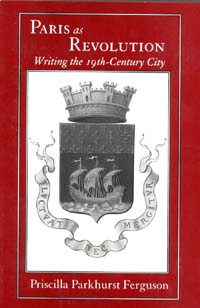 | Title: Paris as revolution: writing in the nineteenth-century city Author: Ferguson, Priscilla Parkhurst Published: University of California Press, 1997 Subjects: Literature | Social Theory | European Literature | Literary Theory and Criticism | European History | French Studies Publisher's Description: In nineteenth-century Paris, passionate involvement with revolution turned the city into an engrossing object of cultural speculation. For writers caught between an explosive past and a bewildering future, revolution offered a virtuoso metaphor by which the city could be known and a vital principle through which it could be portrayed.In this engaging book, Priscilla Ferguson locates the originality and modernity of nineteenth-century French literature in the intersection of the city with revolution. A cultural geography, Paris as Revolution "reads" the nineteenth-century city not in literary works alone but across a broad spectrum of urban icons and narratives. Ferguson moves easily between literary and cultural history and between semiotic and sociological analysis to underscore the movement and change that fueled the powerful narratives defining the century, the city, and their literature. In her understanding and reconstruction of the guidebooks of Mercier, Hugo, Vallès, and others, alongside the novels of Flaubert, Hugo, Vallès, and Zola, Ferguson reveals that these works are themselves revolutionary performances, ones that challenged the modernizing city even as they transcribed its emergence. [brief] Similar Items |
| 13. | 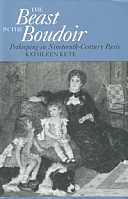 | Title: The beast in the boudoir: petkeeping in nineteenth-century Paris Author: Kete, Kathleen Published: University of California Press, 1994 Subjects: History | European History | French Studies | European Studies Publisher's Description: Kathleen Kete's wise and witty examination of petkeeping in nineteenth-century Paris provides a unique window through which to view the lives of ordinary French people. She demonstrates how that cliché of modern life, the family dog, reveals the tensions that modernity created for the Parisian bourgeoisie.Kete's study draws on a range of literary and archival sources, from dog-care books to veterinarians's records to Dumas's musings on his cat. The fad for aquariums, attitudes toward vivisection, the dread of rabies, the development of dog breeding - all are shown to reflect the ways middle-class people thought about their lives. Petkeeping, says Kete, was a way to imagine a better, more manageable version of the world - it relieved the pressures of contemporary life and improvised solutions to the intractable mesh that was post-Enlightenment France. The faithful, affectionate family dog became a counterpoint to the isolation of individualism and lack of community in urban life. By century's end, however, animals no longer represented the human condition with such potency, and even the irascible, autonomous cat had been rehabilitated into a creature of fidelity and affection.Full of fascinating details, this innovative book will contribute to the way we understand culture and the creation of class. [brief] Similar Items |
| 14. |  | Title: Representation and its discontents: the critical legacy of German romanticism Author: Seyhan, Azade Published: University of California Press, 1992 Subjects: Philosophy | Literary Theory and Criticism | German Studies Publisher's Description: Azade Seyhan provides a concise, elegantly argued introduction to the critical theory of German Romanticism and demonstrates how its approach to the metaphorical and linguistic nature of knowledge is very much alive in contemporary philosophy and literary theory. Her analysis of key thinkers such as Friedrich Schlegel and Novalis explores their views on rhetoric, systematicity, hermeneutics, and cultural interpretation. Seyhan examines German Romanticism as a critical intervention in the debates on representation, which developed in response to the philosophical revolution of German Idealism.Facing a chaotic political and intellectual landscape, the eighteenth-century theorists sought new models of understanding and new objectives for criticism and philosophy. Representation and Its Discontents identifies the legacy of this formative moment in modern criticism and suggests its relevance to contemporary discussions of post-structuralism, orientalism, theories of textuality, and the nature of philosophical discourse. [brief] Similar Items |
| 15. | 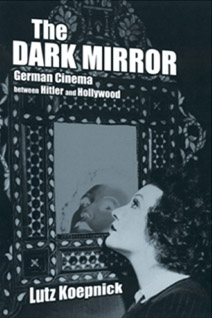 | Title: The dark mirror: German cinema between Hitler and Hollywood Author: Koepnick, Lutz P. (Lutz Peter) Published: University of California Press, 2002 Subjects: Cinema and Performance Arts | German Studies | Music | Film Publisher's Description: Lutz Koepnick analyzes the complicated relationship between two cinemas - Hollywood's and Nazi Germany's - in this theoretically and politically incisive study. The Dark Mirror examines the split course of German popular film from the early 1930s until the mid 1950s, showing how Nazi filmmakers appropriated Hollywood conventions and how German film exiles reworked German cultural material in their efforts to find a working base in the Hollywood studio system. Through detailed readings of specific films, Koepnick provides a vivid sense of the give and take between German and American cinema. [brief] Similar Items |
| 16. | 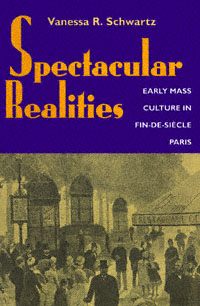 | Title: Spectacular realities: early mass culture in fin-de-siècle Paris Author: Schwartz, Vanessa R Published: University of California Press, 1998 Subjects: History | French Studies | European History | European Literature | Women's Studies | Film Publisher's Description: During the second half of the nineteenth century, Paris emerged as the entertainment capital of the world. The sparkling redesigned city fostered a culture of energetic crowd-pleasing and multi-sensory amusements that would apprehend and represent real life as spectacle.Vanessa R. Schwartz examines the explosive popularity of such phenomena as the boulevards, the mass press, public displays of corpses at the morgue, wax museums, panoramas, and early film. Drawing on a wide range of written and visual materials, including private and business archives, and working at the intersections of art history, literature, and cinema studies, Schwartz argues that "spectacular realities" are part of the foundation of modern mass society. She refutes the notion that modern life produced an unending parade of distractions leading to alienation, and instead suggests that crowds gathered not as dislocated spectators but as members of a new kind of crowd, one united in pleasure rather than protest. [brief] Similar Items |
| 17. |  | Title: In the shadow of catastrophe: German intellectuals between apocalypse and enlightenment Author: Rabinbach, Anson Published: University of California Press, 1997 Subjects: History | German Studies | Social and Political Thought | Philosophy Publisher's Description: These essays by eminent European intellectual and cultural historian Anson Rabinbach address the writings of key figures in twentieth-century German philosophy. Rabinbach explores their ideas in relation to the two world wars and the horrors facing Europe at that time.Analyzing the work of Benjamin and Bloch, he suggests their indebtedness to the traditions of Jewish messianism. In a discussion of Hugo Ball's little-known Critique of the German Intelligentsia , Rabinbach reveals the curious intellectual career of the Dadaist and antiwar activist turned-nationalist and anti-Semite. His examination of Heidegger's "Letter on Humanism" and Jaspers's The Question of German Guilt illuminates the complex and often obscure political referents of these texts. Turning to Horkheimer and Adorno's Dialectic of Enlightenment , Rabinbach offers an arresting new interpretation of this central text of the critical theory of the Frankfurt School. Subtly and persuasively argued, his book will become an indispensable reference point for all concerned with twentieth-century German history and thought. [brief] Similar Items |
| 18. | 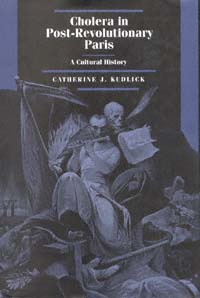 | Title: Cholera in post-revolutionary Paris: a cultural history Author: Kudlick, Catherine Jean Published: University of California Press, 1996 Subjects: History | European History | Medicine Publisher's Description: Cholera terrified and fascinated nineteenth-century Europeans more than any other modern disease. Its symptoms were gruesome, its sources were mysterious, and it tended to strike poor neighborhoods hardest. In this insightful cultural history, Catherine Kudlick explores the dynamics of class relations through an investigation of the responses to two cholera epidemics in Paris.While Paris climbed toward the height of its urban and industrial growth, two outbreaks of the disease ravaged the capital, one in 1832, the other in 1849. Despite the similarity of the epidemics, the first outbreak was met with general frenzy and far greater attention in the press, popular literature and personal accounts, while the second was greeted with relative silence. Finding no compelling evidence for improved medical knowledge, changes in the Paris environment, or desensitization of Parisians, Kudlick looks to the evolution of the French revolutionary tradition and the emergence of the Parisian bourgeoisie for answers. [brief] Similar Items |
| 19. | 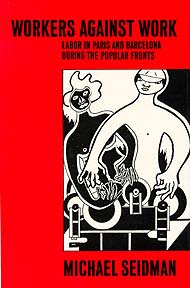 | Title: Workers against work: labor in Paris and Barcelona during the popular fronts Author: Seidman, Michael (Michael M.) Published: University of California Press, 1990 Subjects: History | European History | Social Science | French Studies | Labor Studies Publisher's Description: Why did a revolution occur in Spain and not in France in 1936? This is the key question Michael Seidman explores in his important new study of the relations between industrial capitalists and working-class movements in the early part of this century. In a comparative analysis of Paris during the Popular Front and Barcelona during the Spanish Revolution, Seidman examines the strengths and weaknesses of the bourgeoisie in these two cities and traces workers' resistance to, and acceptance of, work. His emphasis on the continuing refusal to work challenges the dominant views of labor historiography and contributes to a general theory of revolutionary workers' control.Seidman illuminates three crucial issues that have broad implications for the history of the twentieth century. His comparative approach delineates the nature of class confrontation in societies with different kinds of bourgeoisies or capitalist elites. He also shows how the differences between these elites affected the labor movements in France and Spain, and he demonstrates how rank-and-file workers actually responded to the revolutionary situation in Barcelona and to the advent of the reformist government in Paris.A social history of acceptance and rejection of work, this book offers a new conceptualization of wage earners and a critique of work itself. [brief] Similar Items |
| 20. | 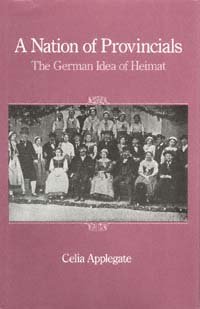 | Title: A nation of provincials: the German idea of Heimat Author: Applegate, Celia Published: University of California Press, 1990 Subjects: History | European History | German Studies Publisher's Description: At the center of this pioneering work in modern European history is the German word Heimat - the homeland, the local place. Translations barely penetrate the meaning of the word, which has provided the emotional and ideological common ground for a variety of associations and individuals devoted to the cause of local preservation. Celia Applegate examines at both the national and regional levels the cultural meaning of Heimat and why it may be pivotal to the troubled and very timely question of German identity.The ideas and activities clustered around Heimat shed new light particularly on problems of modernization. Instead of viewing the Germans as a dangerously anti-modern people, Applegate argues that they used the cultivation of Heimat to ground an abstract nationalism in their attachment to familiar places and to reconcile the modern industrial and urban world with the rural landscapes and customs they admired. Primarily a characteristic of the middle classes, love of Heimat constituted an alternative vision of German unity to the familiar aggressive, militaristic one. The Heimat vision of Germany emphasized cultural diversity and defined German identity by its internal members rather than its external enemies.Applegate asks that we re-examine the continuities of German history from the perspective of the local places that made up Germany, rather than from that of prominent intellectuals or national policymakers. The local patriotism of Heimat activists emerges as an element of German culture that persisted across the great divides of 1918, 1933, and 1945. She also suggests that this attachment to a particular place is a feature of Europeans in general and is deserving of further attention. [brief] Similar Items |